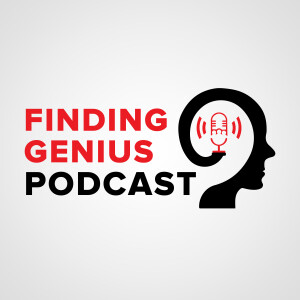
- Podcast Features
-
Monetization
-
Ads Marketplace
Join Ads Marketplace to earn through podcast sponsorships.
-
PodAds
Manage your ads with dynamic ad insertion capability.
-
Apple Podcasts Subscriptions Integration
Monetize with Apple Podcasts Subscriptions via Podbean.
-
Live Streaming
Earn rewards and recurring income from Fan Club membership.
-
Ads Marketplace
- Podbean App
-
Help and Support
-
Help Center
Get the answers and support you need.
-
Podbean Academy
Resources and guides to launch, grow, and monetize podcast.
-
Podbean Blog
Stay updated with the latest podcasting tips and trends.
-
What’s New
Check out our newest and recently released features!
-
Podcasting Smarter
Podcast interviews, best practices, and helpful tips.
-
Help Center
-
Popular Topics
-
How to Start a Podcast
The step-by-step guide to start your own podcast.
-
How to Start a Live Podcast
Create the best live podcast and engage your audience.
-
How to Monetize a Podcast
Tips on making the decision to monetize your podcast.
-
How to Promote Your Podcast
The best ways to get more eyes and ears on your podcast.
-
Podcast Advertising 101
Everything you need to know about podcast advertising.
-
Mobile Podcast Recording Guide
The ultimate guide to recording a podcast on your phone.
-
How to Use Group Recording
Steps to set up and use group recording in the Podbean app.
-
How to Start a Podcast
-
Podcasting
- Podcast Features
-
Monetization
-
Ads Marketplace
Join Ads Marketplace to earn through podcast sponsorships.
-
PodAds
Manage your ads with dynamic ad insertion capability.
-
Apple Podcasts Subscriptions Integration
Monetize with Apple Podcasts Subscriptions via Podbean.
-
Live Streaming
Earn rewards and recurring income from Fan Club membership.
-
Ads Marketplace
- Podbean App
- Advertisers
- Enterprise
- Pricing
-
Resources
-
Help and Support
-
Help Center
Get the answers and support you need.
-
Podbean Academy
Resources and guides to launch, grow, and monetize podcast.
-
Podbean Blog
Stay updated with the latest podcasting tips and trends.
-
What’s New
Check out our newest and recently released features!
-
Podcasting Smarter
Podcast interviews, best practices, and helpful tips.
-
Help Center
-
Popular Topics
-
How to Start a Podcast
The step-by-step guide to start your own podcast.
-
How to Start a Live Podcast
Create the best live podcast and engage your audience.
-
How to Monetize a Podcast
Tips on making the decision to monetize your podcast.
-
How to Promote Your Podcast
The best ways to get more eyes and ears on your podcast.
-
Podcast Advertising 101
Everything you need to know about podcast advertising.
-
Mobile Podcast Recording Guide
The ultimate guide to recording a podcast on your phone.
-
How to Use Group Recording
Steps to set up and use group recording in the Podbean app.
-
How to Start a Podcast
-
Help and Support
- Discover

Characterizing Cancer: Quantgene’s Jo Bhakdi Talks Cutting-Edge Data Analysis for Early Detection
Returning guest Jo Bhadi discusses using new platforms and technologies to predict cancer probability as well as what he’s learned about how cancer evolves. He also discusses how Quantgene seeks to serve its customers.
He addresses
- How Quantgene uses the human genome sequence, artificial intelligence, liquid biopsies, and other technology platforms to identify cancer patterns;
- How they’ve put together a monthly subscription turnkey service for early cancer detection; and
- How cancer itself develops and how they approach detection with this layering of different types of information to achieve a specificity of detection above 90%.
Jo Bhakdi started Quantgene in 2015 at a UC Berkeley Lab with a goal of early disease detection. The company uses quantitative science for a new level of precision. They started in cancer detection spaces using cell-free DNA sequencing with what is known about the human genome sequence. They saw a tremendous opportunity opening up based on new technology platforms, sequencing, and AI recognition algorithms.
In a nutshell, they pursued how to look at cell-free DNA shed by cancer in the bloodstream and recognition patterns to identify the 15 most deadly cancers. They sell their services directly to patients but include physicians and genetic counselors in the process.
He explains their business model in further detail but also covers the complications of detecting and understanding cancer progression, from the heterogeneity of tumors to advantages of cell-free DNA sequencing compared to tumor biopsies. He explains the systemic insight into cancer a liquid biopsy offers. He describes other limitations of tumor biopsies and how the question of heterogeneity of a tumor is surprisingly complex.
In fact, he adds that the whole concept of quantifying tumor heterogeneity is a very new concept. He describes many characteristics of cancer and its evolution in more detail and then addresses how Quantgene layers many degrees of information, including medical and genetic history, to produce a highly precise probabilistic model.
For more about the company, see quantgene.com. To find out about the direct-to-consumer service, see chooseserenity.com.
Available on Apple Podcasts: apple.co/2Os0myK
More Episodes
Create your
podcast in
minutes
- Full-featured podcast site
- Unlimited storage and bandwidth
- Comprehensive podcast stats
- Distribute to Apple Podcasts, Spotify, and more
- Make money with your podcast
It is Free
- Privacy Policy
- Cookie Policy
- Terms of Use
- Consent Preferences
- Copyright © 2015-2025 Podbean.com





